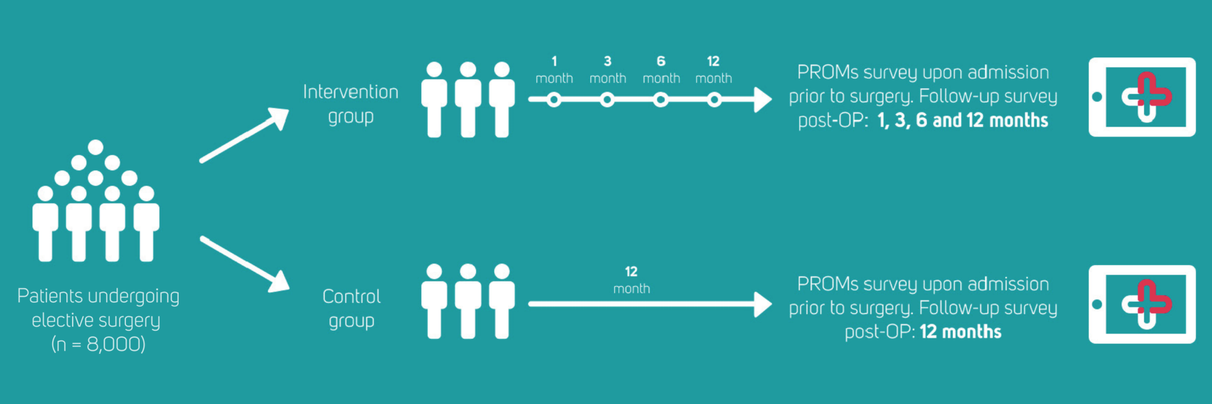For some time now, the Federal Joint Committee (G-BA) has been calling for cost-efficient patient focus in the quality management guidelines. However, there is no standardized quality control of the treatment success from the patient’s point of view. 1
Whilst countries such as Sweden or Great Britain have already established mechanisms for the nationwide collection of PROMs for specific clinical areas, many decentralized projects have been developed in Germany. 2,3 With an increasing understanding of the potential of PROs across multiple players involved in healthcare, a movement towards standardization and comparability is now evident. One of these endeavors is the standardized survey of PROs via the Quality Medicine Initiative with almost 500 members. 4
Despite the successful use of PROs in everyday treatment and in research, there is currently limited proof of benefit in terms of cost efficiency in relation to the quality of treatment. The PROMoting Quality study began in 2019 in order to improve the data on the cost-effectiveness of PRO recording in routine care. 5
